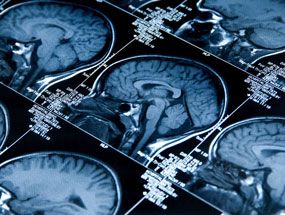Article
Effect of Hypnotherapy and Educational Interventions on Brain Response in Patients with Irritable Bowel Syndrome
Researchers using fMRI to study neural activity in IBS patients report that the processing and perception of visceral stimuli can be modulated by psychological and cognitive treatment.

Some studies have shown that gut-directed hypnotherapy can help improve symptoms when incorporated into the treatment of irritable bowel syndrome (IBS). However, according to the authors of “Effect of Hypnotherapy and Educational Intervention on Brain Response to Visceral Stimulus in the Irritable Bowel Syndrome,” published in Alimentary Pharmacology and Therapeutics, despite the successful use of hypnotherapy for the treatment of IBS symptoms, “the neurobiological mechanisms underlying this mind-based therapy remain largely unknown.”
To assess the role of these neurobiological mechanisms, researchers used fMRI to measure brain response to both expected and delivered visceral stimuli (in this case, rectal balloon distension) in IBS patients who had undergone successful hypnotherapy, patients who had completed an IBS-focused educational intervention, and healthy controls. They sought to test whether:
- IBS patients in whom hypnotherapy resulted in “significant GI symptom reduction” demonstrated changes in brain responses to visceral stimuli
- Brain responses in hypnotherapy responders differ from those observed in patients who completed IBS-related education
- Patterns of brain activation in treatment responders are similar to responses seen in healthy controls
For the study, investigators recruited a cohort of 44 female patients who had a diagnosis of IBS that fulfilled Rome III criteria (29 with IBS-M, 10 with IBS-D, and 5 with IBS-C) whose symptoms had not improved following conventional IBS treatment, and 20 healthy controls. Patients were assigned to undergo hypnotherapy (seven weeks of one-hour sessions delivered by an experienced hypnotherapist) or an IBS educational intervention (seven individual 45-minute sessions delivered by gastroenterologists).
Participants also completed the IBS severity scoring system (IBS SSS), visceral sensitivity index (VSI), Hospital Anxiety and Depression Scale, and a 0-10 scale used to assess the current intensity of gastrointestinal symptoms. Patients also kept gastrointestinal symptom diaries for two weeks pre- and post-treatment.
All participants also completed a fMRI session during which they were monitored “while 18 low- (15 mmHg) and 20 high-intensity (45 mmHg) rectal distension (duration 15 s) were delivered in a pseudorandomised order.”
Following discontinuations for various reasons, investigators obtained complete data from 16 patients who underwent hypnotherapy (HYP), nine patients who completed the educational intervention (EDU), and 18 healthy controls (HC).
Results
The researchers reported that subjects who completed HYP reduced their IBS-SSS score from 342 to 233 (P < 0.0001), and their VSI score from 48 to 34 (P < 0.0001). Subjects who completed EDU reduced their IBS-SSS score from 340 to 256 (P = 0.02) and their VSI score from 48 to 36 (P = 0.005). Thirteen HYP subjects and seven EDU responded to therapy, demonstrating significant decreases in VSI score and GI-symptom intensity and unpleasantness.
In their discussion of the study results, the authors reported:
- Successful treatment was associated with significant blood oxygen level-dependent (BOLD) signal reductions during both high-intensity rectal distension and expectation of such distension in the ventral and dorsal anterior insula, a brain region that is “essential for the conscious awareness of visceral sensations”
- A significant correlation between treatment-induced reduction in GI-related anxiety (VSI) and BOLD decrease in the ventral and dorsal anterior insula
- Brain responses associated with symptom reduction during HYP and EDU showed similarities both during distension and expectation in the form of reductions in ventral and dorsal anterior insula activity, but differed in other responses
- Post-treatment brain response to high-intensity distension was “similar to that observed in HCs, suggesting that psychological/cognitive treatment has a normalising effect on the central processing of visceral stimuli in IBS”
Based on these results, the investigators concluded that “Gut-directed hypotherapy as well as disease-related education resulted in a clinically significant level of symptom improvement and decreased GI-related anxiety,” which correlated with a reduction in BOLD responses in the ventral and dorsal anterior insula to a high-intensity visceral stimulus. This “demonstrates that the processing and perception of visceral stimuli can be modulated by psychological and cognitive treatment.”





